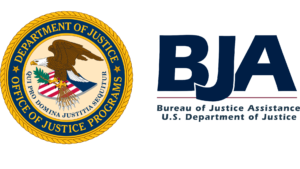The Justice Reinvestment Initiative in Iowa Aligning Public Safety and Supervision Practices
In March 2020, the Iowa Department of Corrections (IDOC) faced overcrowding and urgent health concerns. To address these issues, IDOC and other criminal justice agencies implemented measures to reduce the prison population and expand community-based corrections (CBC). These efforts included limiting revocations, expanding administrative review processes, releasing low-risk individuals, and increasing the use of telehealth and technology for supervision and programming. As a result, the prison population decreased by 13 percent within 6 months, while the CBC population increased by nearly 17 percent. Despite this increase, the average monthly revocation rate decreased by almost 40 percent between March 2020 and March 2021. In 2021, Iowa state leaders requested support from the U.S. Department of Justice’s Office of Justice Programs’ Bureau of Justice Assistance and The Pew Charitable Trusts to assess the impact of these changes on public safety and CBC operations using a Justice Reinvestment Initiative approach. This brief summarizes the findings from that effort.
Overview
In March 2020, Iowa Department of Corrections (IDOC) facilities were over capacity by nearly 22 percent,1 and IDOC leaders faced an urgent need to protect the health and safety of correctional staff and the clients they serve by safely lowering the institutional population. To accomplish this, IDOC and other criminal justice agencies took measures to exhaust community resources before recommending revocations from community-based corrections (CBC), expand administrative processes for reviewing revocations, and release individuals who did not pose a risk to public safety from the state’s correctional facilities onto the state’s CBC caseload. (CBC includes probation, parole, pretrial release, work release, and more.) Criminal justice stakeholders across the state also implemented changes at the local level that increased both the use of telehealth services delivered by community treatment providers and the use of technology to continue supervision contacts, deliver programming, and convene court hearings.
The cumulative effect of these efforts was evident in the state’s criminal justice trends within the first 6 months after March 2020 when Iowa’s prison population decreased by 13 percent,2 and the CBC population increased by nearly 17 percent.3 Despite the substantial increase in the CBC population, the average monthly revocation rate decreased by nearly 40 percent between March 2020 and March 2021;4 in fact, between March 2019 and May 2021, less than 2 percent of the total supervision population was revoked.5 In part, these reductions resulted from operational procedures that CBC agencies began implementing as part of a larger goal to safely reduce revocations and prioritize jail and prison space for people who posed a risk to public safety.
While these recent reductions in prison population and revocation rates are impressive and important, challenges remain. In fiscal year (FY) 2020, revocations comprised more than half of prison admissions,6 and April 2022 population data show that facilities are slowly rebounding to early 2020 levels.7 If the prison population continues to grow, current projections estimate that IDOC facilities will be nearly 22 percent over capacity by the end of FY 2030.8 The recent upward trend in both prison and CBC populations will create more challenges for state budgets while potentially posing a risk to the health and safety of staff and the clients they serve. Given these trends, agency leaders sought to assess whether IDOC’s policies limiting revocation resulted in an increase in violent crime. This information would inform immediate policy and practice decisions the state implements to effectively manage the prison and CBC populations.
In the spring of 2021, 12 Iowa leaders, including Governor Kim Reynolds, Senator Dan Dawson, Senator Todd Taylor, then-Representative Gary Worthan, and the 8 judicial district directors of Departments of Correctional Services, requested support from the U.S. Department of Justice’s Office of Justice Programs’ Bureau of Justice Assistance (BJA) and The Pew Charitable Trusts (Pew) to use a bipartisan, interbranch group of leaders to conduct an extensive analysis of available data, a comprehensive assessment of community supervision practices, and engagement of criminal justice stakeholders across the state. BJA and Pew approved Iowa state leaders’ request and asked The Council of State Governments (CSG) Justice Center to use a Justice Reinvestment Initiative (JRI) approach to conduct a targeted analysis of Iowa’s criminal justice responses implemented after March 2020 and the potential impact on public safety and CBC operations. Iowa is one of the first states in the country to attempt to understand the impacts of the state’s public health decisions on its criminal justice system and public safety.
To accomplish this, CSG Justice Center staff partnered with a newly created interbranch group of criminal justice stakeholders in Iowa (hereafter referred to as “the Iowa Oversight Committee on Justice Reinvestment”) to answer the following questions:
1. Have prison release decisions and community supervision practice changes made after March 2020 had a positive, negative, or neutral impact on public safety and CBC operations?
2. Should IDOC and CBC agencies continue or enhance these new procedures to increase staff’s ability to successfully supervise individuals in the community?
3. Do IDOC and CBC need any specific resources or better procedures (training, technology, treatment services, etc.) to successfully supervise individuals in the community?
4. To maximize potential benefits and resources, what data-driven recommendations (administrative or legislative) may be needed to improve clients’ chances of success in the community?
Iowa Oversight Committee on Justice Reinvestment
The 39-member oversight committee, which included executive, judicial, and legislative representatives; correctional staff; law enforcement personnel; people with lived experiences in the criminal justice system; and stakeholders from the behavioral health, victim services, and advocacy communities, met 3 times between March and October 2022 to review analyses and discuss administrative and legislative recommendations.
Oversight Committee Members (Titles and affiliations were current as of October 2022.)
Betty Andrews
President, Iowa-Nebraska National Association for the Advancement of Colored People (NAACP)
Rob Burdess
President, Iowa Police Chief’s Association, and Chief of Police, Newton Police Department
Leslie Carpenter
Volunteer Lobbyist, NAMI Iowa
Katrina Carter
Director, Reentry and Treatment Services, IDOC
Steven Clarke
Administrative Law Judge, Iowa Board of Parole
Nicholas Crawford
Spokesperson, IDOC
Nicholas Davis
Chair, Iowa Board of Parole
Dan Dawson
State Senator, Iowa Senate
DeAnn Decker
Bureau Chief of Substance Use, Iowa Department of Public Health
Darren Driscoll
County Attorney, Webster County
Marissa Eyanson
Division Administrator, Community Mental Health and Disability Services, IA Department of
Human Services
Sarah Fineran
Research Director, IDOC
Robert Gast
State Court Administrator, Iowa Judicial Branch
Jessie Goodwin
Co-Founder, Kingdom Living Iowa
Jerome Greenfield
Health Services Administrator, IDOC
Jamie Hagemeier
Executive Director, Youth Law Center and Former Clinician in Residence, Drake University Legal Clinic and Incarcerated Parent Representation Program
Maureen Hansen
District Director of Correctional Services, Third Judicial District
Victoria Henderson Weber
President, NAACP Des Moines
Peggy Huppert
Executive Director, National Alliance on Mental Illness
(NAMI) Iowa
Kenneth Kolthoff
District Director of Correctional Services, First Judicial District
Sally Kreamer
Deputy Director, IDOC
Christine Louis
Administrative Law Judge, Iowa Board of Parole
Janet Lyness
County Attorney, Johnson County
Mary Lynn Wolfe
State Representative, Iowa House of Representatives
Waylyn McCulloh
District Director of Correctional Services, Seventh Judicial District
Pete McRoberts
Policy Director, American Civil Liberties Union (ACLU)
Robert Rigg
President, Iowa Association of Criminal Defense Lawyers and Professor of Law, Drake University
Mary Roche
Director, Victim Services, IDOC
Terri Rosonke
Housing Programs Manager, Iowa Finance Authority
Kip Shanks
District Director of Correctional Services, Fourth Judicial District
Beth Skinner
Director, IDOC
Todd Taylor
State Senator, Iowa Senate
Deb Theeler
Executive Director, Freedom Houses Des Moines
Tony Thompson
President, Iowa State Sheriff’s & Deputies’ Association and Sheriff, Black Hawk County
Sandi Tibbetts Murphy
Director, Crime Victim Assistance Division, Iowa Attorney General’s Office
Annie Uetz
Program Planner, Polk County Health Services
Mike Wolf
County Attorney, Clinton County
Gary Worthan
State Representative, Iowa House of Representatives
Jeff Wright
State Public Defender, Iowa Office of the State Public Defender
Data Collection and Analysis
IDOC and Criminal and Juvenile Justice Planning provided extensive case- and client-level data to the CSG Justice Center. In total, staff analyzed more than 78,000 case-level data records spanning almost 4 years across these sources, including case-level probation, parole, work release, and criminal history data. Analyzing the impact of revocation-reduction efforts on public safety to this scale had not yet been undertaken in Iowa. Additionally, these data were used to analyze racial disproportionality in the CBC population and disparity in clients’ rates of revocations and referrals to interventions. CSG Justice Center staff used both descriptive statistics and regression analysis to examine these trends. Additional context and information were provided by approximately 80 virtual interviews and focus groups with 147 criminal justice stakeholders in Iowa including CBC staff from 7 judicial districts, IDOC administration, administrative law judges, individuals formerly or currently on supervision, county attorneys, chiefs of police, sheriffs, reentry stakeholders, and victim advocates.
The analysis attempted to target the impact of IDOC’s policy and practice changes on violent crime rates, given that other changes were occurring during this time that impacted court practices and case processing times. CSG Justice Center staff attempted to account for these possible impacts by using clients’ initial charge offense as well as the date of charge as opposed to conviction offense and date to lessen the effect of changing court practices like increased plea bargaining, that may change the conviction offense from violent to nonviolent, or delays in court processing times after March 2020. However, analysis cannot account for any changes in crime reporting over time.
The analysis found that violent crime did not meaningfully change after March 2020 among people on community supervision. After accounting for multiple client characteristics that might otherwise explain fluctuations over time, the results show variation in violent crime trends at the district level, but no significant statewide changes. Most districts experienced very small changes—fewer than 5 offenses per 100,000 people. This indicates that IDOC’s revocation-reduction efforts did not increase violent crime and negatively impact public safety statewide. However, to preserve the positive trend in revocations, it is necessary for the state to strengthen CBC policy and practice.
Key Challenges
Through its comprehensive review of state data and information gathered from stakeholders, the Iowa Oversight Committee on Justice Reinvestment examined the results and identified the following key challenges facing the CBC system.
- CBC staff identified challenges with implementing practice changes, including some officers’ feelings that they lack the discretion they used to have to recommend revocation when they view it as an appropriate response to client behavior.
- In the 2 years following March 2020, more than half of the people on supervision met all the conditions of their sentence.9
- Statewide, the average monthly revocation rate decreased by over 40 percent between March 2020 and December 2021.10
- Supervision violations decreased between March 2020 and May 2021, with alcohol/drug and non-public safety threat violations decreasing the most—almost 18 and 16 percent, respectively.11
- Revocations after March 2020 had approximately 25 percent more public safety threat violations linked to them indicating that the use of revocations has focused more on addressing public safety concerns.12
- Criminal justice stakeholders across the state identified a lack of community-based behavioral health treatment providers to meet the needs of the population. Waiting lists inhibit officers’ ability to support clients experiencing a mental health crisis, and clients struggle to pay for treatment services or find affordable housing. Transportation is also a huge barrier, especially for clients in rural areas.
Summary of Proposed Administrative and Legislative Priorities
The administrative and legislative priorities proposed by the Iowa Oversight Committee on Justice Reinvestment (listed below) were designed to achieve the following goals:
- Better understand and detail larger criminal justice responses and changes implemented by criminal justice stakeholders (law enforcement, courts, CBC, etc.) after March 2020.
- Detail the impact and cost/benefit of reducing revocations on public health and safety and CBC operations.
- Identify whether additional specific resources or administrative and/or legislative recommendations are needed to enhance officers’ ability to successfully supervise individuals in the community.
- Provide criminal justice stakeholders with recommendations that:
- Continue to protect public safety;
- Maintain the health and safety of criminal justice staff and people who interact with the criminal justice system;
- Increase the use of creative practices that appropriately focus officers’ time and community supervision resources while preserving effective community supervision;
- Focus community supervision on client success; and
- Potentially reduce prison populations over time.
The priorities below cover operational changes implemented after March 2020, responding to client behavior; use of risk assessments; resource needs; ways to strengthen and sustain progress; supervision level 0, which is the lowest supervision level and involves no structured contacts with an officer and no risk assessment; and racial disparities. The information gleaned during interviews and focus groups reflects the perspectives of the particular people who participated and may not capture the experiences of all stakeholder groups.
The JRI analysis shows that clients can be safely managed in the community while limiting revocation to people who pose a public safety risk. Results indicate that public safety concerns should not prevent Iowa from continuing revocation-reduction practices in the immediate future. While extending these practices did not result in negative public safety impacts, the CBC/criminal justice stakeholder assessment revealed improvements that could strengthen CBC and give officers more tools to manage clients effectively and safely, based on best practices for community supervision. More detail on the findings from the stakeholder assessment can be found in the final presentation to the Iowa Oversight Committee on Justice Reinvestment.
Administrative Priorities
Based on these findings and discussion with Iowa’s bipartisan, tribranch JRI leadership group, CSG Justice Center staff recommend the following administrative priorities in areas where IDOC can change policy and practice to maximize and extend impacts from its decreased revocation rates and still uphold public safety.
Strengthening and Sustaining Progress
- Establish or use an already existing statewide, interagency task force that includes multiple representatives from the legislature, IDOC, CBC, Iowa Department of Human Services, community-based providers, advocacy organizations, and formerly supervised individuals to build on the oversight committee’s efforts to enhance community supervision across the state. This task force should do the following:
- Map statewide services that work with the community supervision population and report a strategy to the legislature for increasing the availability of programming, services, and treatment for the community supervision population. This could include expanding regional treatment services.
- Recruit a standing change/implementation team composed of people from each district and at each level (i.e., director, supervisor, CBC officer) that would be responsible for collaboratively developing new policies or designing new initiatives in partnership with IDOC; writing an implementation plan to include a pilot program or grant application, when appropriate; and communicating this information back to staff in their districts. This is similar to a process that IDOC conducted in recent years that should be continued.
- Ensure that staff coaching is tied to (and performance evaluations assess) how staff perform as agents of behavior change. The effective implementation of evidence-based strategies designed to change client behavior should be regularly evaluated (at least twice per year) and incorporated into formal performance evaluations as a signal to staff that these changes are enduring and important. Supervisors, including district directors, should be evaluated on their leadership in developing and supporting staff as they put these goals into practice. Development goals to improve all staff’s skills in these areas should be identified in their evaluations, and they should be given appropriate time and resources to work toward these goals.
- Regularly survey districts for training needs and standardize training across districts to ensure that every CBC officer is trained on how to conduct contact sessions to facilitate behavior change and balance the demands of being a change agent, protecting public safety, and adhering to data entry requirements. Offering training at various locations across the state could improve attendance and reduce the burden on staff to attend.
- Standardize use of dashboards to give staff at every level a quick visualization of several key metrics, depending on their position. Dashboards should include metrics that reflect the work officers put into supervising clients, including time spent on interventions during client meetings and the number and type of referrals officers make to resources, and reflect input from CBC staff in each district.
- Establish policies and procedures pertaining to data management to ensure that districts collect data in a uniform manner that allows for reliable tracking of statewide metrics over time.
Resource Needs
- Increase collaboration with community-based providers by designating staff within each judicial district to focus on building connections with community-based providers and tracking the availability of services offered in each district and their eligibility requirements.
- Create a standard regarding community-based provider requirements for regular reporting and a standard reporting form for these providers to use.
Use of Risk Assessments
- In addition to staffing the Dynamic Rick Assessment of Offender Re-Entry (DRAOR) helpdesk, develop a “quick guide” that CBC officers can consult when they have questions about how to score questions on the DRAOR.
- Incorporate five-year validation intervals into policy for all assessment tools to ensure they remain predictive and address and mitigate issues of gender and racial bias, thereby ensuring similar accuracy across gender and race.
- Report validation results to district staff at all levels to demonstrate the tools’ effectiveness and promote more support for their use in conjunction with a CBC officer’s professional judgment.
Responding to Client Behavior
- Update the response matrix tool that districts use as a guide for working with clients and ensure the outlined responses to client behavior are true options in each district, given current resources. This effort should involve collecting input from staff at all levels and districts and ensuring they can collaborate with IDOC on any changes.
- Policies should specify that four incentives should be used for every one sanction. Incentives could include verbal or written recognition, curfew reduction, approved travel requests, or early discharge from supervision.
- With a continuing emphasis on reducing revocations and managing clients in the community, IDOC should adjust the response matrix to clarify that repeated, lower-level violations could receive responses that do not necessarily escalate after the second instance.
- Data should be monitored on violation types across racial and ethnic groups and the use of sanctions, incentives, and other interventions to determine if CBC officers are using them differently across these groups and develop corrective actions to remediate this, if necessary.
- Provide refresher training to ensure that districts are using the standardized case plan form in ICON to increase uniformity in data tracking across districts.
- Districts should produce and distribute reports to measure the use and effectiveness of incentives and sanctions and connect proper use to CBC officer performance appraisals.
Supervision Level 0
- Supervision level 0, which is the lowest supervision level and involves no structured contacts with an officer and no risk assessment, should be studied for possible changes and potential elimination.
Operational Changes
- Continue to reduce reliance on revocations by examining why clients are successful on supervision and bolstering the responses that foster their success. Reinforce these responses so that CBC officers can promote success. This was recommended by some district directors who believe that changing the conversation from “what went wrong?” to “what went right?” may better resonate with CBC officers and help earn their support for practice changes. This would include gathering and publishing metrics not only about supervision failures, but the number of people successfully discharged from supervision, the number of clients with full-time employment, etc. Because many officers asked for more communication from IDOC, this information should be passed on to staff at all levels in each district.
- Provide training on how to record virtual contacts in the Iowa Correctional Offender Network (ICON) case management system in all districts to allow IDOC to track their use over time and assess their utility.
- Enshrine the use of virtual contacts in contact standards policy, based on supervision level, so that they are used in a standardized manner within or across each district. Virtual contacts could be used in place of some in-person contacts according to each person’s supervision level (i.e., lower-risk clients can have more virtual contacts in lieu of in-person contacts than higher-risk clients) or used to enhance communication with clients, not to increase the existing contact requirements.
Racial Disparities
- Incorporate breakdown by race and ethnicity for program referrals into the Iowa Quality Assurance Tool.
- Develop a statewide referral process outlining the criteria for program referrals and regularly run reports to see how well the criteria are being followed. Additionally, QA processes should include checks on referrals to treatment by race and ethnicity.
- Assess the effectiveness of treatment by race and ethnicity to see if there is a need for more culturally inclusive approaches.
- Incorporate automated referrals or prompts for officers into existing tools to reinforce consistent referrals by risk and needs.
- Share resources across districts to address client needs—for example, opening virtual programs to clients from other districts.
- Incorporate race and ethnicity into all data analysis to swiftly identify areas of disparate outputs. Interrogate these differences and develop practices to reduce racial disparities in all community-based corrections practices.
- Examine internal treatment and programming gaps.
- Examine gaps in services by judicial district and strategically develop and prioritize new programming and approaches in under-resourced neighborhoods.
Legislative Priorities
Through conversations with stakeholders, CSG Justice Center staff identified areas where additional action is crucial and would support these administrative improvements. The following legislative priorities would require additional state support and should be shared by IDOC.
Responding to Client Behavior
- Change the current statute’s (Sec. 907.9) language requiring the payment of court debt and supervision fees before allowing a CBC officer to recommend early discharge from supervision. This change could involve specifying that early discharge is permitted after a client fulfills their pecuniary damages requirements, regardless of whether they have paid their other fines and fees.
Use of Risk Assessments
-
Fund every district to have staff members dedicated to consistent training, coaching, and continuous quality improvement to ensure these tasks can be completed according to policy.
Resource Needs
- Increase funding to manage critical infrastructure needs in districts, such as building, maintenance, and equipment issues, to ensure that community supervision facilities can safely house and provide services for the community supervision population.
- Provide funding to designate CBC staff within each judicial district to conduct prerelease engagement activities with clients returning to their district and foster a warm hand-off with CBC and community-based providers.
Strengthening and Sustaining Progress
- Specify in statute what categories of in-service training should be completed by CBC staff and the general topics in evidence-based principles of intervention that should be covered during the training, including gender-responsive supervision practices.
- Provide funding to hire reentry coordinators in each IDOC institution to facilitate the transition of people from prison to the community to help ensure success on supervision.
- Provide funding for districts to cover the cost of administrative staff who assist CBC officers with data entry.
- Evaluate the pay of CBC staff to ensure it is competitive within the industry to attract strong candidates.
Looking Ahead
Between October 2022 and May 2023, CSG Justice Center staff worked closely with leaders in the state to identify the administrative priorities that IDOC and the judicial districts would like to implement and establish next steps for implementation. The legislative priorities that the CSG Justice Center recommended may be included in future legislative agendas developed by IDOC.
Although IDOC leadership and most district directors were interested in implementing the administrative recommendations, their views varied on the urgency of this work and whether they and their staff had time to dedicate to implementation given other priorities. IDOC remained committed to the work of implementation and prioritizing the project’s recommendations, but their ability to put these policies into practice was limited without the clear support of district directors.
This shifted with the passage of Senate File 514, which was signed by Governor Kim Reynolds on April 4, 2023. This law consolidates the control of community supervision under IDOC, removing the local control previously held by district directors. The passage of this legislation opens the door to successful implementation of the project’s recommendations with adequate resources and attention invested in achieving this goal.
Endnotes
1. Analysis of Iowa Department of Corrections data conducted by The Council of State Governments Justice Center, February 1, 2022.
2. “Quarterly Quick Facts, September 30, 2021,” Iowa Department of Corrections, accessed October 31, 2021, https://doc.iowa.gov/quick-facts.
3. Ibid.
4. Analysis of Iowa Department of Corrections data conducted by The Council of State Governments Justice Center, February 1, 2022.
5. Ibid.
6. Iowa Department of Corrections, FY2020 Annual Report (Des Moines, IA: Iowa Department of Corrections, 2020).
7. Ibid.
8. Iowa Department of Human Rights, Division of Criminal and Juvenile Justice Planning, The Correctional Policy Project Iowa Prison-Population Forecast FY 2020–FY 2030 (Des Moines, IA: Iowa Department of Human Rights, Division of Criminal and Juvenile Justice Planning 2020).
9. “Quarterly Quick Facts, March 31, 2021,” Iowa Department of Corrections, accessed May 31, 2021, https://doc.iowa.gov/quick-facts.
10. Analysis of Iowa Department of Corrections data conducted by The Council of State Governments Justice Center, May 31, 2022.
11. Ibid.
12. Ibid.

This project was supported by Grant No. 2019-ZB-BX-K002 awarded by the Bureau of Justice Assistance. The Bureau of Justice Assistance is a component of the Office of Justice Programs, which also includes the Bureau of Justice Statistics, the National Institute of Justice, the Office of Juvenile Justice and Delinquency Prevention, the Office for Victims of Crime, and Office of Sex Offender Sentencing, Monitoring, Apprehending, Registering, and Tracking. Points of view or opinions in this document are those of the author and do not necessarily represent the official position or policies of the U.S. Department of Justice.

The Council of State Governments (CSG) Justice Center is a national nonprofit organization that serves policymakers at the local, state, and federal levels from all branches of government. The CSG Justice Center’s work in Justice Reinvestment is done in partnership with The Pew Charitable Trusts and the U.S. Department of Justice’s Bureau of Justice Assistance. These efforts have provided data-driven analyses and policy options to policymakers in 34 states. For additional information about Justice Reinvestment, please visit csgjusticecenter.org/projects/justice-reinvestment.

Research and analysis described in this report has been funded in part by The Pew Charitable Trusts public safety performance project. From 2005 to 2023, Pew and its partners conducted research, provided technical assistance to governments, and made strategic grants to advance fiscally sound, data-driven criminal and juvenile justice policies and practices that protect public safety, ensure accountability, and reduce correctional populations and costs. To learn more about the project, please visit pewtrusts.org/publicsafety.
Project Contacts:
Alison Martin, Deputy Program Director | amartin@csg.org
Project Credits
Writing: Alison Martin and Greg Halls, CSG Justice Center
Research: Andrew Byrum, CSG Justice Center
Advising: Ellen Whelan-Wuest, CSG Justice Center
Editing: Leslie Griffin, CSG Justice Center
Public Affairs: Kevin Dugan, CSG Justice Center
Design: Hanley Hoang, CSG Justice Center
Web Development: Yewande Ojo, CSG Justice Center
About the author













